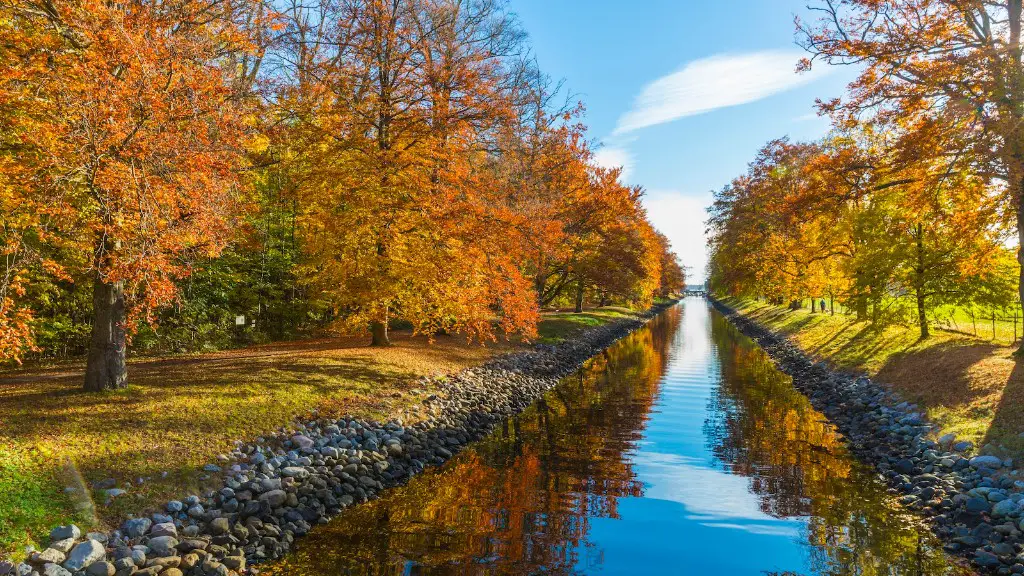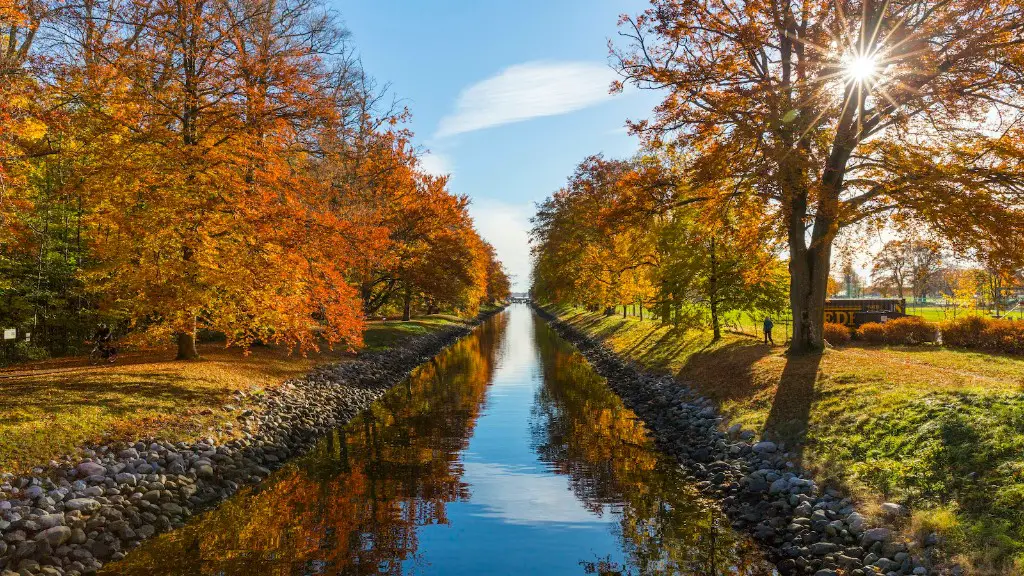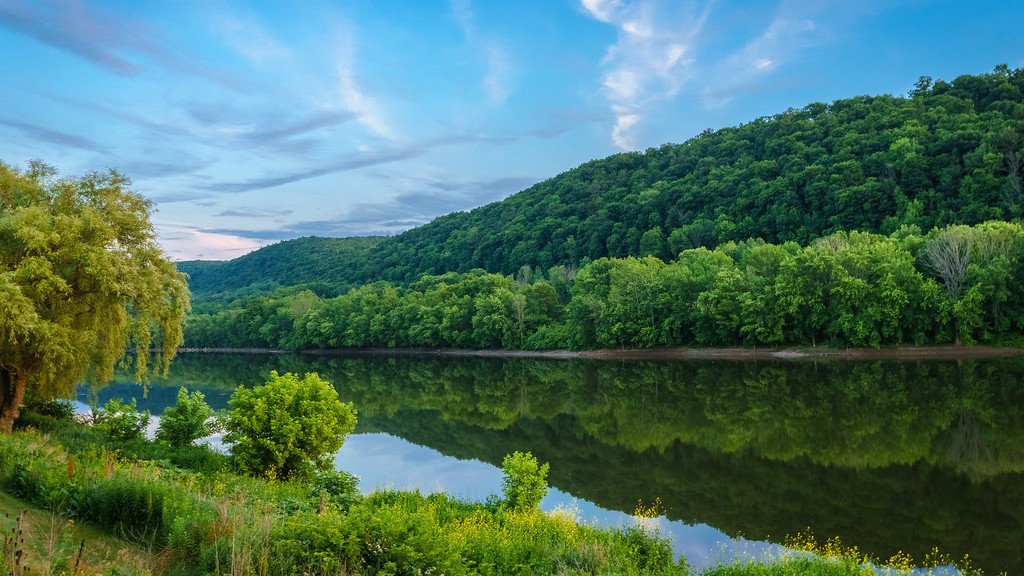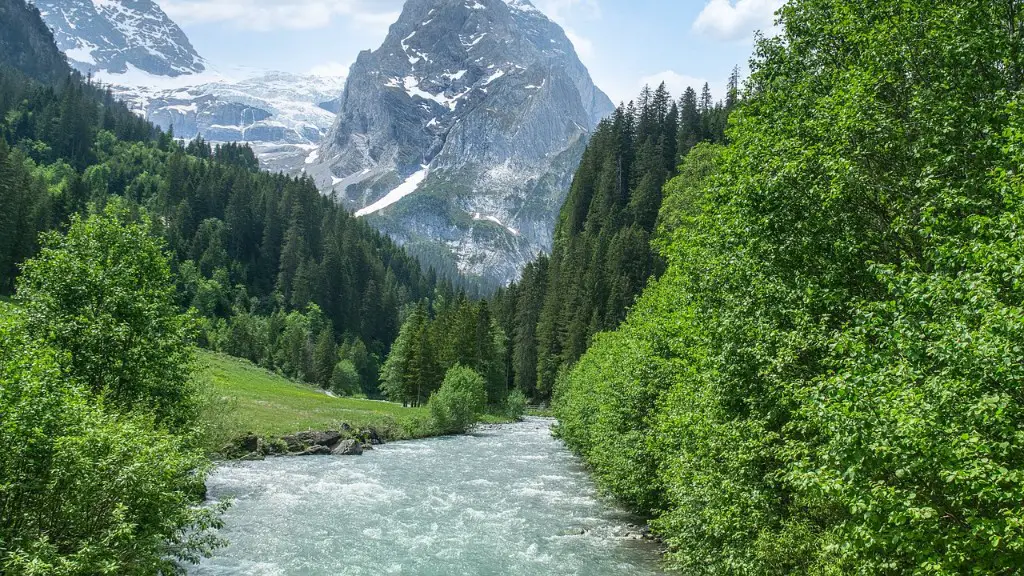Introduction
The Mississippi River is one of the most iconic rivers in the world. Its length is more than 2,480 miles, and its course flows across more than 15 US states and drainage areas in two Canadian provinces. Its wide, shallow waters have been used since the earliest days of human habitation as a waterway for transport and commerce of all kinds, giving it a rich and varied history. In this article, we will explore how people use the Mississippi River today, uncovering its potential as a source of environmental and recreational benefit.
Fishing and Wildlife
The Mississippi River provides an excellent habitat for a variety of aquatic animals, and is home to a vast array of fish species. Fishing is a popular activity along the river, and some of the most sought-after species include bass, crappie, bluegill and catfish. They provide excellent sport for anglers, but also provide valuable resources to nearby communities. The river also supports a variety of other wildlife, from beavers and otters to waterfowl and migratory birds, providing year-round enjoyment and educational opportunities.
The Mississippi River forms an essential part of the US shipping system. It has many locks and dams, providing commercial vessels with access to the Gulf of Mexico. From the ports located along the river, goods can be sent to destinations in Mexico, Canada and the Caribbean. This makes it an important trading route and economic driver for industries, businesses, and workers in the midwest.
Tourism and Recreation
Aside from its economic and environmental benefits, the Mississippi River is a major tourist destination. Many of the US states it passes through are home to national parks and recreation sites, offering vacationers and adventure-seekers the chance to explore and enjoy the stunning beauty of this vast waterway. The river’s variety of wildlife and the stunning scenery it offers make it a popular spot for camping, canoeing, boating, and fishing.
Environmental Preservation
The Mississippi River and its tributaries form one of the largest watersheds in the world. In recent years, numerous organizations have worked to improve and protect the river’s delicate ecosystems. They are focusing on areas including water quality, flood management, and habitat restoration. The aim is to reduce pollution, clean up and restore the river, and provide more recreational opportunities. These efforts are essential for protecting the river and the surrounding land, both for the present and for future generations.
Agriculture
The Mississippi River’s wide bed and shallow waters provide ideal conditions for agriculture. Agriculture is the main source of income for many families and communities along the river, providing them with sustenance and employment. The river also plays an important role in other aspects of agriculture, such as irrigation, soil erosion control and water supply.
Flood Control
The Mississippi River is prone to regular flooding, and the resulting damage can be devastating. The US Army Corps of Engineers has developed a range of measures to reduce the impacts of flooding, such as levees, floodwalls, and diversions. These measures not only protect lives and property in the event of a flood, but also provide a more sustainable and cost-effective way of managing water resources in the region.
Energy Production
The Mississippi River is a key source of hydroelectric power, providing clean and reliable energy to millions of people in the midwest and beyond. The river’s hydroelectric plants harness the energy produced by the flow of the water and convert it into electricity, providing a renewable source of power that helps to reduce the reliance on fossil fuels.
Education and Scientific Research
The Mississippi River is an invaluable source of knowledge and information. Scientists and educators utilize the river’s diverse ecosystems as a living laboratory, where they can study the effects of pollution, climate change and other environmental factors. The river also serves as a learning tool for students of natural science, providing an amazing opportunity to explore and understand the power of nature.
Outreach and Visitors Centers
As awareness of the importance of the Mississippi River grows, so too does the need to educate people about its value and share its stories. Numerous outreach and visitor centers have been established along the river, providing educational activities and programs to the public. These centers play an important role in inspiring people to appreciate the natural beauty and cultural significance of the river, while raising awareness of the issues affecting its health.
Industry
The Mississippi River serves as a vital artery for the US economy. Its wide, shallow waters provide a key transport route for goods and services, while its extensive water resources are utilized by industries such as petrochemicals and manufacturing. Furthermore, the river serves as a power source for numerous businesses located along its banks.
Native American History
The Mississippi River has a long and rich history of Native American use and occupation. Prehistoric settlements and trading networks once existed along its shores, and many tribes, such as the Dakota, Ho-Chunk, Osage, and Quapaw, have a deep connection to the river and its surroundings. This connection is still visible today, and numerous cultural landmarks, such as burial mounds and pictographs, can be found along the river’s banks.
Conclusion
As this article has highlighted, the Mississippi River is an essential part of life for many people in the US and is an integral part of the nation’s economy and culture. Its extensive water resources and abundant wildlife provide countless opportunities for recreation, trade, and industry. It is also an important asset for environmental conservation, and its history and cultural significance are unparalleled. The river has long been a source of life, beauty and inspiration and will continue to provide these benefits for many years to come.



